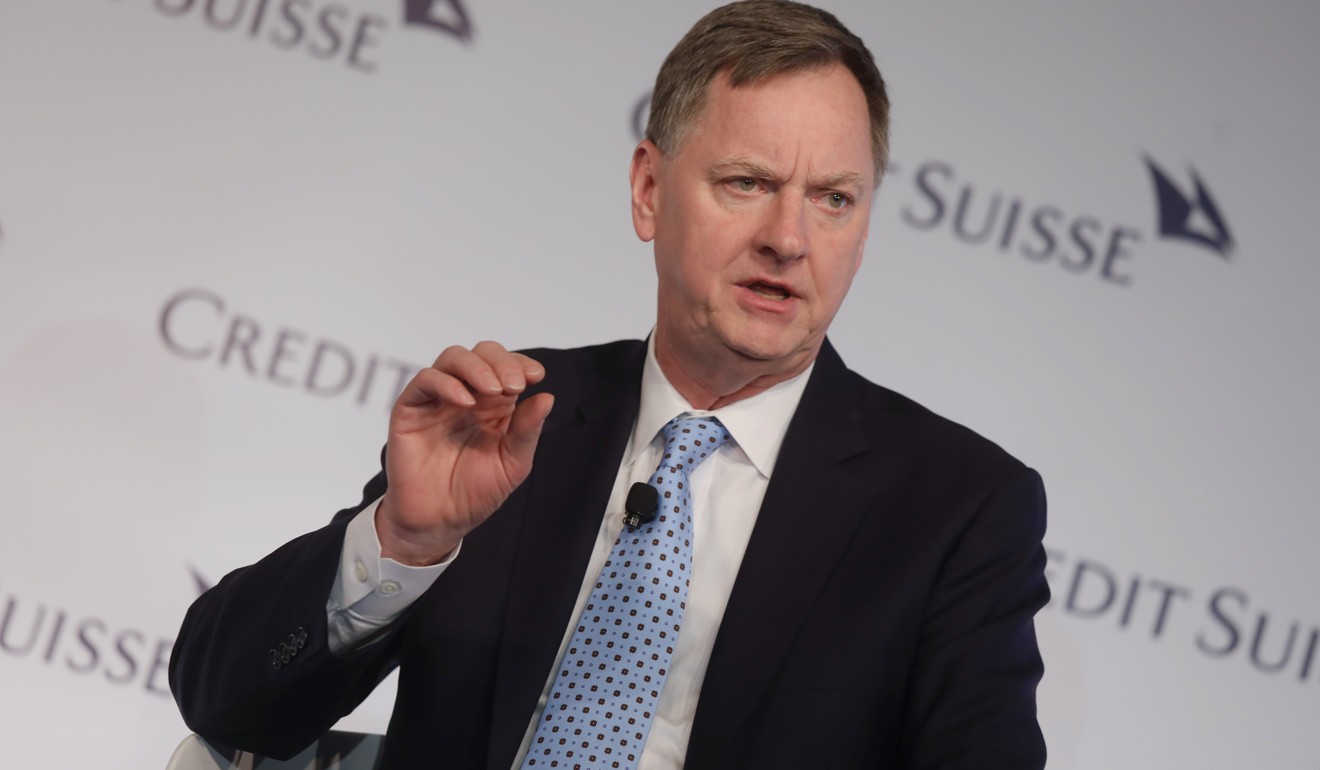
US recession unlikely, says former Federal Reserve chair Janet Yellen says
- Although economic growth in the United States is slowing, it is ‘not a dangerous situation’, she says
- Remarks echo those of Chicago Federal Reserve president Charles Evans, who put the chances of a US recession at no more than 25 per cent
Economic growth in the United States is slowing but it is unlikely to drop to a level that will cause a recession, former US Federal Reserve chair Janet Yellen said in Hong Kong on Monday.
“I don’t see a recession in the US as particularly likely. The US is certainly experiencing a slowing of growth and that is something that was long expected,” Yellen said at a Credit Suisse forum on Asian investment.
The US economy grew by more than 3 per cent last year due to a huge US fiscal stimulus, synchronised global growth and highly accommodative financial conditions. But those factors were not expected to last, Yellen said. The positive impact from the fiscal stimulus has faded substantially, while financial conditions have tightened and the global growth outlook is less strong than it was previously.
“Forecasts from the Fed [policymaking] committee meeting show growth would slow to something close to 2 per cent, which is near to the rate of growth of potential output in the US. That is not a dangerous situation,” Yellen said.
Forecasts from the Fed [policymaking] committee meeting show growth would slow to something close to 2 per cent, which is near to the rate of growth of potential output in the US. That is not a dangerous situation.
Historically, a cause of US recessions has been a financial imbalance that led to an unwinding of a “bubble”, such as happened in the global financial crisis in 2008-09. However, the current financial system does not show any signs that it could be the cause of such a shock, she added.
Another cause of past US downturns has been when inflation rose to unacceptably high levels, forcing the US Federal Reserve to tighten policy significantly over a short period of time. In these situations the economy was overheated, inflation was too high, and the US Federal Reserve tightened policy to a restrictive level that led the economy to stumble and subsequently fall into recession, Yellen said.
But the current inflation environment is very different, with inflation at barely 2 per cent – little different than the US Federal Reserve’s target.
“We have a Fed that is committed to preserve and extend the expansion and does not see the inflation environment as one that requires a pre-emptive response,” Yellen said. “So I don’t think the Fed will have its finger on [causing] recession certainly in the near future.”
Yellen’s comments echo those of Charles Evans, the president of the Chicago Federal Reserve, who said earlier on Monday that growth in the US economy remained robust even though it had slowed.

Evans put the chances of a US recession at no more than 25 per cent, which he said was “not extraordinary”.
The confidence displayed in the comments by both Yellen and Evans contrasts sharply with the sentiment among market traders and fund managers.
Federal Open Market Committee members last week signalled a U-turn in their policy, abandoning their expectation they would raise interest rates further and announcing they now planned no more rate rises this year. 。
The US Federal Reserve last week said it would slow the selling-off of securities on its balance sheet to US$15 billion per month from US$30 billion starting in May, with the process coming to a complete halt at the end of September. The move will leave more liquidity in financial markets.
The US Federal Reserve’s moves will only boost the market conviction that the next decision will be an interest-rate cut, analysts said.
“The Fed changed its policy because of the slowdown of its economy and the fact that there hasn’t been a further pickup in inflation,” said Richard Yetsenga, chief economist at ANZ Bank. “But like everybody else, the Fed is also a bit worried about the slowdown that we have seen in the global economy.”
Analysts believe fears of a recession is likely to linger given the inversion of the bond yield curve, with short-term interest rates rising above long-term interest rates, they said. Historically, yield curve inversions have often preceded recessions, most recently in 2007 before the global financial crisis.
“It means that it is much more difficult for anyone to make investment returns for taking short-term deposits and lend that out for a longer period of time. So it is typically quite a negative signal for bank lending and for the provision of credit,” Yetsenga said.

